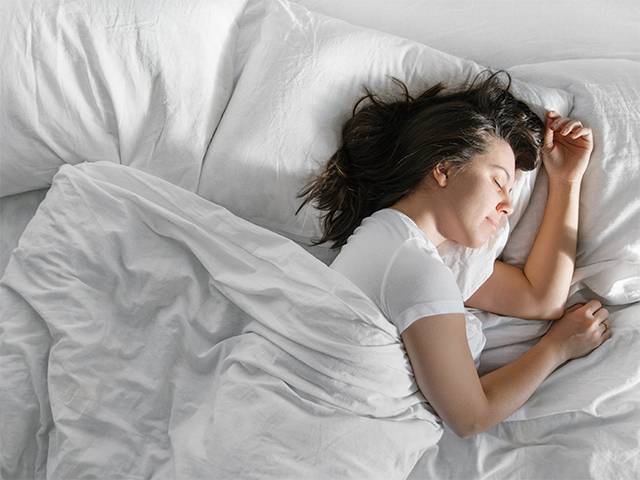Sleep: a key to all-round health and wellbeing

By CEO of The Banyans Healthcare Group, Ruth Limkin
For many people, getting a good night's sleep is easier said than done. With all that we have going on in our lives, it can be so difficult to prioritise rest. We need sleep to function to the best of its ability, and when we have poor-quality sleep, there can be both physical and mental impacts which can have significant affect on one's daily life and health.
New research from The Banyans Healthcare Group reveals over half of Australians (57%) have struggled to sleep properly over the last year, with nearly one in two (48%) saying stress is what impacts their sleep the most. While stress is a normal thing most people experience, it can come to a point where an individual's stress may be so overwhelming that it could take them a long time to fall asleep, they may fall in and out of sleep, or they won't get any sleep at all.
Stress can be caused by a number of factors, including but not only work, school, relationships and money. It's important to recognise the signs of stress early on and try to reduce the impact this has on sleep before it starts a negative cycle. Preparation with healthy habits before bed can assist. To reduce the likelihood of a stress disrupting sleep, meditation and breathing exercises before bed, listening to relaxing music or reading a book can be a good way to start to promote good sleep hygiene. These activities not only help to clear the stress from your mind but may also allow you to become more mindful and relaxed, assisting you to fall asleep more quickly rather than tossing and turning all night.
Quantity also matters. It's important to go to bed at a reasonable hour and to get around 8 hours of sleep. If you are constantly going to be late at night and waking up early in the morning, these lost hours of sleep catch up to you, leaving you feel quickly worn out. In fact, most people will begin to experience the effects of sleep deprivation after just 24 hours. Some research indicates that staying awake for at least 24 hours is comparable to having a blood alcohol content (BAC) of 0.10 percent. Being excessively tired can impact a person's productivity, concentration, and memory. Lack of sleep can also cause behavioural changes such as anger, frustration and irritability.
Sleep deprivation can also result in physical symptoms, including reduced immunity, drowsiness, high blood pressure, weight gain, increased risk of heart disease, loss of physical strength, and more. It's common for individuals to be unaware of these potential physical impacts of not getting enough sleep, when in reality, they are just as important to understand as the mental and emotional consequences.
At The Banyans Healthcare Group, we promote a holistic approach to health with sleep being a central part of good physical, mental and emotional wellbeing. Putting focus on managing stress triggers, incorporating regular physical activity and creating a balanced and nutritious diet can help promote improvements in your sleep patterns and the quality of sleep you're getting. As we are integrated beings, the pillars of health are all connected which means improvements in one area of your life often result in positive impacts across others.
If you find yourself still struggling to get a healthy sleep cycle going, it's recommended that you seek professional help. The underlying causes for a lack of sleep, including stress, are sometimes best off being addressed through a therapeutic approach. Individuals can then talk with someone about their emotions, why they are struggling with sleep, and other related factors, to help pinpoint the best solution for that person's lifestyle.
MORE



